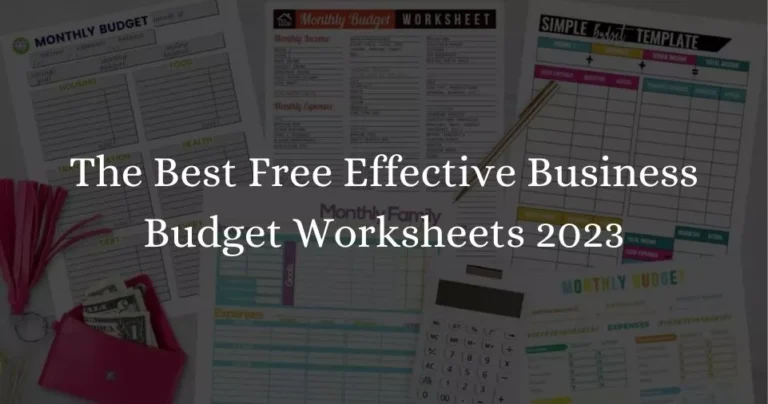The Organized Taxpayer’s Guide: Mastering the Essentials for a Breezy Tax Season
The period leading up to April can trigger stress as individuals and businesses prepare to file their taxes.
However, it doesn’t necessarily need to be a period of turmoil. The entire process can be significantly eased with the right know-how and tools.
To streamline your tax season, it’s essential to be well-prepared and take advantage of digital tools and professional advice that can provide financial benefits.
Cataloging your financial activities throughout the year, familiarizing yourself with the latest tax rules, and acknowledging the different tax preparation services at your disposal can minimize potential errors and ensure compliance and efficiency.
It’s helpful to regularly review trusted resources for updated information on tax regulations and strategies.
This best practice will stand you in good stead when you file your taxes.

Understanding Basic Tax Terminology
Entering the world of taxation without understanding the vocabulary is like navigating a foreign country without knowing the language.
With fundamental concepts such as ‘adjusted gross income,’ ‘deductible expenses, and ‘taxable income,’ it becomes possible to make sense of tax forms and instructions.
This foundational knowledge helps pinpoint what parts of your income are subject to taxes and identify potential savings through various credits and deductions.
Moreover, a solid grasp of the terminology is invaluable when navigating the advantages of online services like TurboTax, especially when using a conveniently available TurboTax promo code.
Organizing Your Financial Documents
One of the most crucial steps in tax preparation is gathering and organizing all relevant financial documents.
This encompasses financial statements, proof of income, and records of all possible tax-deductible expenses. Having these documents ready can simplify the process of filling out your tax returns and provide evidence of your claims in the event of an audit.
Efficient organization throughout the year, such as by segmenting documents by type and date, can drastically reduce the time spent scrambling for paperwork come tax season.
Making Sense of Tax Deductions
Tax deductions can significantly lower your taxable income, but many taxpayers need help understanding which deductions they’re eligible for.
Some deductions are straightforward, such as mortgage interest or educational expenses. Others, like a home office or medical expense deductions, might require fulfilling specific conditions.
It’s essential to research these thoroughly or consult a tax professional to ensure you’re taking advantage of valuable chances to reduce your tax burden.
Using Technology to Your Advantage
In the digital age, tax preparation software has become indispensable for juggling the demands of accurate filing.
Tech solutions offer guided experiences, from inputting your financial data to optimizing deductions and credits.
Such software often includes error checks and audit risk indicators, highlighting red flags before submitting your tax return.
Leveraging a deal offers access to robust filing tools without straining your wallet, ensuring you get every dollar you deserve with minimal effort.
The Role of Tax Professionals
For specific individuals, the assurance of having a tax professional handle their filing is incomparable. Tax laws can be intricate and subject to frequent changes, which professionals keep track of as part of their job.
Their expert advice is instrumental in complex tax situations, like estate planning or managing business taxes, where the stakes are higher and the rules more convoluted.
For taxpayers who choose DIY routes but face challenges, many tax software programs provide professional support services to resolve any issues encountered.
Common Mistakes to Avoid
Mistakes in tax filings can delay your refund, trigger an audit, or result in fees. Common errors include misreporting income, improperly claiming deductions, and filing under the wrong status.
Simple measures like double-checking numbers, ensuring the accuracy of personal information, and being meticulous with data entry can prevent these issues.
It’s essential to take a systematic approach to reviewing your return, which clear alerts and guides in tax software can facilitate.
Timing Your Filing Correctly
The timing of your tax filing is a balancing act. Filing early may provide relief and accelerate refunds, but rushing through the process can lead to omissions or errors.
Conversely, waiting until the last moment can induce unnecessary stress and increase the likelihood of mistakes.
Aiming to file your taxes weeks before the deadline is a good practice as it allows sufficient time for a thorough review and any necessary corrections.
Dealing with Complex Tax Situations
Individuals with multiple sources of income, those with foreign earnings, or those with large investment portfolios often encounter a maze of tax regulations.
Under these circumstances, it’s crucial to seek assistance through advanced tax preparation software or consulting with a tax professional.
These services can help disentangle the complexities of your financial situation and ensure that you meet all your tax obligations accurately.
State Tax Nuances
While federal tax filing garners most of the attention, state taxes impose additional requirements that must be fulfilled.
Understanding state tax laws can result in unwelcome penalties or missed savings opportunities.
Modern tax software usually accounts for these differences and can guide you through the specificities of your state’s tax code, ensuring you follow every necessary guideline.
Also Read:
Planning for Next Tax Season
As you traverse through the intricacies of the tax season, it’s prudent to cast an eye toward the horizon and begin preparations for the next cycle.
Take a moment to ponder your recent filing experience: Did you find yourself pleasantly surprised by a substantial refund, or did you face the unwelcome prospect of owing a significant amount?
Reflecting on these outcomes provides valuable insights for the future. Adjusting your withholdings or making estimated tax payments throughout the year can help prevent similar scenarios from arising next tax season.
Additionally, consider implementing proactive strategies to mitigate future tax burdens. Initiating a dedicated tax savings account allows you to set aside funds systematically, ensuring you’re prepared for tax obligations when they arise.
Moreover, exploring tax-smart investment choices can yield dual benefits by potentially generating returns and strategically reducing your future tax liabilities.
By taking these proactive steps, you’re safeguarding your financial stability and laying the groundwork for a healthier and more resilient economic future.






